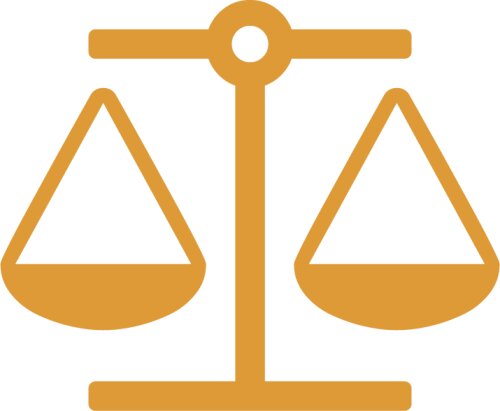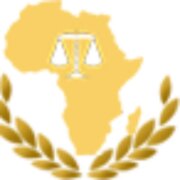Best Project Finance Lawyers in Kinshasa
Share your needs with us, get contacted by law firms.
Free. Takes 2 min.
List of the best lawyers in Kinshasa, DR Congo
About Project Finance Law in Kinshasa, DR Congo
Project finance is a method of funding large infrastructure and industrial projects. In Kinshasa, DR Congo, this practice plays a critical role in sectors such as mining, energy, transportation, and telecommunications. Project finance typically involves the creation of a legally independent project company, funded by a mix of debt and equity, whose cash flows and assets serve as the primary source of repayment for the investors and lenders. Because such projects frequently involve multiple stakeholders - including government entities, international lenders, and private sector players - navigating the legal landscape in Kinshasa is essential. Project finance law in the DRC must be carefully structured to account for risk allocation, regulatory compliance, and security for financial instruments.
Why You May Need a Lawyer
There are numerous situations where legal assistance is crucial in project finance transactions in Kinshasa. These include:
- Drafting and reviewing complex contracts between lenders, sponsors, and contractors.
- Advising on structuring the project company and shareholding agreements.
- Securing permits and licenses from government bodies.
- Increasing deal transparency and compliance with local and international regulations.
- Negotiating and closing financing arrangements and security instruments such as pledges and mortgages.
- Mitigating and managing legal risks associated with foreign investment and currency exchange controls.
- Representing clients in disputes or renegotiations that may arise during the life of the project.
Local Laws Overview
Project finance law in Kinshasa, and the Democratic Republic of Congo generally, is shaped by a mix of national legislation and regional protocols:
- OHADA Law: As a member of the Organisation for the Harmonisation of Business Law in Africa (OHADA), DR Congo follows uniform business laws including company law, securities, and insolvency standards that impact project finance transactions.
- Investment Code: The DRC Investment Code provides incentives and sets out requirements for foreign and local investment, including tax exemptions and conditions for profit repatriation.
- Mining and Hydrocarbons Codes: For projects involving extractive industries, specialized codes govern ownership, licensing, and the allocation of royalties.
- Financial Sector Regulations: The Central Bank of Congo oversees foreign currency operations, cross-border transactions, and regulations related to loan security.
- Public-Private Partnership (PPP) Laws: The DRC has established legislation enabling PPPs to facilitate private sector involvement in infrastructure projects.
- Land Rights: All land is owned by the state, and parties must secure long-term leases or concessions for project development.
- Environmental and Social Compliance: Projects are required to conduct environmental impact assessments and gain approval from the relevant government ministries and agencies.
Frequently Asked Questions
What is project finance and how is it different from corporate finance?
In project finance, a standalone project company is created, and lenders rely on the project's assets and future cash flows for loan repayment. In corporate finance, loans are backed by the entire company’s assets.
What sectors in Kinshasa use project finance most frequently?
The most common sectors are mining, energy (such as hydroelectric power), transport infrastructure, and telecommunications.
Can foreign investors participate in project finance in Kinshasa?
Yes, foreign investors are welcome and are protected under the Investment Code, although certain sectors may have local participation requirements.
What are key challenges in structuring a project finance deal in Kinshasa?
Key challenges include regulatory complexity, land acquisition, currency controls, obtaining reliable security interests, and navigating political risks.
What kinds of security can lenders take for project finance loans?
Typical security includes pledges over shares, bank accounts, mortgages on land rights or concessions, and assignments of project revenues.
Are there local content laws to consider?
Certain sectors, notably mining and oil and gas, have local content regulations requiring partnership with Congolese entities or the use of local labor and materials.
How long does it take to get the necessary permits and approvals for a project?
Timelines vary, but it can take several months to over a year to secure all environmental, operational, and construction permits depending on the project's complexity.
Can profits and loan repayments be repatriated by foreign owners?
Yes, provided that all regulatory requirements and foreign exchange controls are satisfied. Legal advice is critical to avoid compliance issues.
What happens if the project company defaults on its obligations?
Lenders may enforce their security interests or initiate insolvency proceedings under OHADA laws, but enforcement can be procedurally complex and time-consuming.
Is local legal representation mandatory in Kinshasa for project finance deals?
While not always mandatory, local legal representation is strongly advised to ensure compliance with DRC laws and to facilitate dealings with government agencies.
Additional Resources
To find further information or support on project finance in Kinshasa, consider the following resources:
- Ministry of Finance (Ministère des Finances): For tax, investment, and fiscal information.
- Central Bank of Congo (Banque Centrale du Congo): For foreign exchange, financial regulations, and licensing.
- National Investment Promotion Agency (ANAPI): Guidance on investment regulations and facilitation.
- OHADA National Commission DR Congo: For business law harmonization and documentation.
- Chamber of Mines and Chamber of Commerce: Sector-specific guidance and contacts.
- Leading national law firms in Kinshasa specializing in infrastructure and project finance.
Next Steps
If you are considering a project finance transaction in Kinshasa, DR Congo, here are suggested steps:
- Consult with a local lawyer who has proven experience in project finance and a strong understanding of the sector relevant to your project.
- Assess the regulatory requirements and permits applicable to your project early in the planning phase.
- Gather all relevant documentation including feasibility studies, environmental assessments, and proposed contract drafts.
- Engage with local authorities and stakeholders to understand social and land issues that may impact your project.
- Consider seeking preliminary advice from investment promotion or regulatory agencies.
- Once you have assembled your advisory team, work collaboratively to structure the project company, finance arrangements, and security interests in compliance with DR Congo law.
Taking these steps will help safeguard your project and ensure a smoother path through the complex legal and regulatory environment in Kinshasa.
Lawzana helps you find the best lawyers and law firms in Kinshasa through a curated and pre-screened list of qualified legal professionals. Our platform offers rankings and detailed profiles of attorneys and law firms, allowing you to compare based on practice areas, including Project Finance, experience, and client feedback.
Each profile includes a description of the firm's areas of practice, client reviews, team members and partners, year of establishment, spoken languages, office locations, contact information, social media presence, and any published articles or resources. Most firms on our platform speak English and are experienced in both local and international legal matters.
Get a quote from top-rated law firms in Kinshasa, DR Congo — quickly, securely, and without unnecessary hassle.
Disclaimer:
The information provided on this page is for general informational purposes only and does not constitute legal advice. While we strive to ensure the accuracy and relevance of the content, legal information may change over time, and interpretations of the law can vary. You should always consult with a qualified legal professional for advice specific to your situation.
We disclaim all liability for actions taken or not taken based on the content of this page. If you believe any information is incorrect or outdated, please contact us, and we will review and update it where appropriate.















